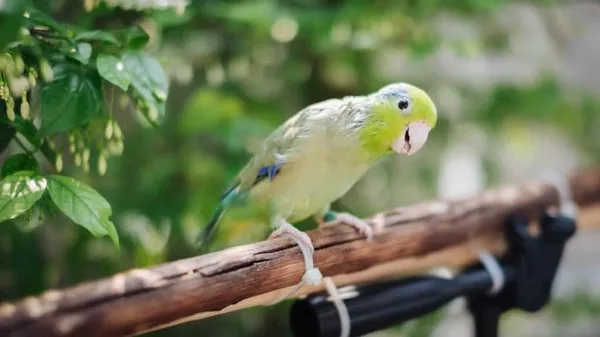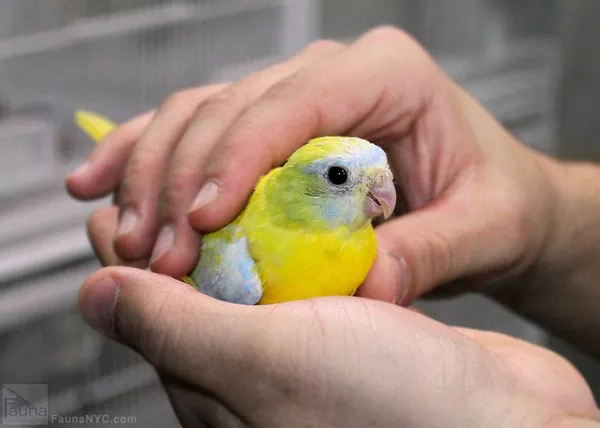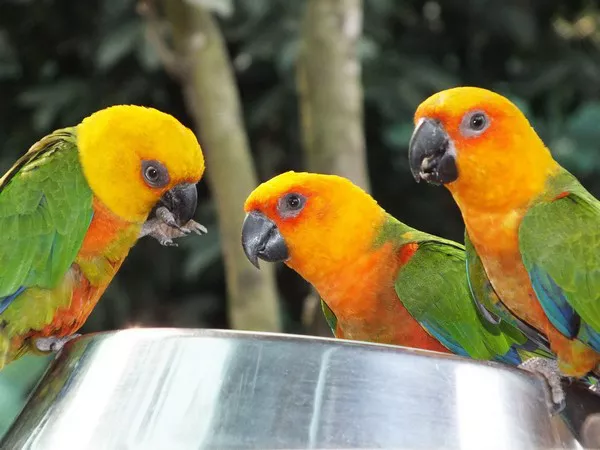Ringneck parrots, scientifically known as Psittacula, are cherished avian companions known for their playful personalities and stunning plumage. Providing them with a well-balanced and nutritionally rich diet is essential for their overall health, longevity, and vibrant appearance. In this article, we will delve into the world of ringneck parrot nutrition, exploring the best food choices to ensure your feathered friend thrives.
Understanding Ringneck Parrot Dietary Needs:
Ringneck parrots are omnivores, meaning they require a diverse diet that includes a variety of fruits, vegetables, grains, and protein sources. A balanced diet not only supports their physical health but also enhances their mental and emotional well-being.
High-Quality Pellets:
Pellets formulated specifically for parrots offer a convenient and balanced source of essential nutrients. Look for pellets that contain a variety of ingredients, including grains, seeds, fruits, and vegetables. Opt for pellets that are free from artificial colors and flavors, as well as those with added vitamins and minerals.
Fresh Fruits:
Fresh fruits provide ringneck parrots with natural sugars, vitamins, and antioxidants. Offer a range of fruits such as apples, grapes, oranges, and berries. However, be cautious with citrus fruits, as they can be too acidic for some parrots. Remove any uneaten fruits to prevent spoilage.
Nutrient-Rich Vegetables:
Vegetables are crucial for ringneck parrot health, offering vitamins, minerals, and fiber. Include leafy greens like spinach and kale, as well as colorful options like carrots, bell peppers, and broccoli. Rotate the vegetables regularly to ensure a varied diet.
Wholesome Grains and Legumes:
Whole grains like brown rice, quinoa, and whole wheat pasta provide complex carbohydrates that offer sustained energy. Legumes such as lentils, chickpeas, and beans are excellent sources of protein and fiber. Cooked and cooled grains and legumes are easier for parrots to digest.
Nuts and Seeds:
While nuts and seeds are calorie-dense and rich in healthy fats, they should be offered in moderation. A small amount of nuts like almonds, walnuts, and unsalted sunflower seeds can be a nutritious treat. Ensure the shells are removed and that they are not a primary part of the diet.
Protein Sources:
Ringneck parrots benefit from occasional lean protein sources, such as cooked poultry, eggs, and low-sodium cooked fish. These options contribute to muscle maintenance and overall well-being. Cook proteins without seasonings, and ensure they are thoroughly cooked.
Calcium-Rich Foods:
Calcium is crucial for maintaining strong bones and eggshell development. Offer calcium-rich foods like dark leafy greens, broccoli, and fortified foods. Cuttlebones and mineral blocks can also be provided for additional calcium supplementation.
Water:
Fresh and clean water is vital for ringneck parrots’ health. Provide filtered or bottled water, and ensure their water dish is cleaned daily to prevent bacterial growth.
Avoid Harmful Foods:
Certain foods are toxic to parrots and should be strictly avoided. These include chocolate, caffeine, alcohol, avocado, onions, and foods high in salt and sugar. Always research foods before introducing them to your parrot’s diet.
Conclusion:
Choosing the best food for your ringneck parrot is a responsibility that directly impacts their well-being and quality of life. A well-rounded diet that incorporates high-quality pellets, fresh fruits, vegetables, grains, and occasional protein sources will provide your parrot with the necessary nutrients for a healthy and joyful existence. Regularly consult with an avian veterinarian or an avian nutritionist to ensure your parrot’s dietary needs are being met, and remember that a balanced diet, combined with love and attention, contributes to a vibrant and happy life for your cherished ringneck parrot.
Recommended reading:
























